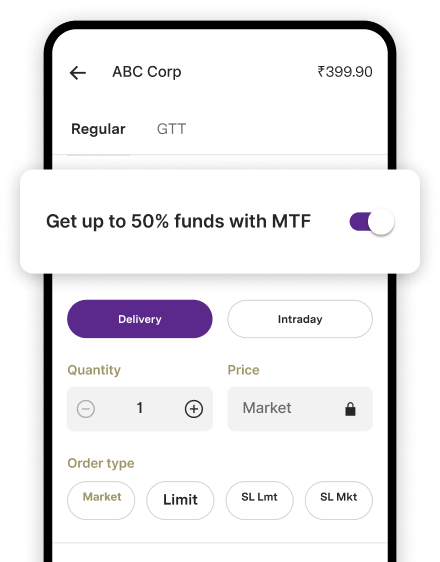Best tax-saving instruments and their returns
As a taxpayer, you need to understand the importance of tax planning. Appropriate tax-saving schemes can help you save a considerable amount of money, which you can use to achieve your financial goals. This blog will discuss the best tax-saving mechanisms available in India to help you save on taxes.
Tax-Saving Instruments in India
There are various tax-saving schemes available in India, to name a few:
- Public Provident Fund (PPF)
- Equity-Linked Saving Schemes (ELSS)
- National Pension Scheme (NPS),
- Tax Saving Fixed Deposits (FDs).
Let's take a look at them and understand how you can take advantage of these schemes and save some tax in the process.
Public Provident Fund (PPF)
Public Provident Fund (PPF) is India's most popular tax-saving instrument. It is a long-term investment option backed by the Government of India, making it a safe and reliable choice for investors.
To open a PPF account, an individual can visit any nationalised bank, authorised post office, or private bank offering PPF accounts. The account can be opened with a minimum deposit of ₹500; the maximum amount that can be invested in a financial year is ₹1.5 lakh. The account has a lock-in period of 15 years, which can be extended for another 5 years in blocks.
Currently, the PPF interest rate has been reduced from 7.9% to 7.1% and it is compounded annually. Returns on investments in PPF are tax-free, making it an attractive investment option for individuals looking to save taxes.
Investing in PPF offers several advantages such as safety of investment and easy accessibility. PPF investments also qualify for tax benefits under Section 80C of the Income Tax Act 1961 for an amount up to ₹1,50,000 per annum.
However, there are also certain limitations to investing in the PPF. The lock-in period of 15 years may not be suitable for individuals looking for short-term investments.
Overall, PPF is a safe and reliable investment option that provides good returns on investment and tax benefits. It is suitable for individuals looking for long-term investment options with low risk.
Equity-Linked Saving Schemes (ELSS)
Equity-Linked Saving Schemes (ELSS) are one of the most popular tax-saving instruments in India. ELSS are mutual fund schemes that invest primarily in equities and offer tax benefits to investors under Section 80C of the Income Tax Act.
These funds invest mainly in the shares of listed companies. The shares of the scheme are selected from a variety of sectors and as per the market capitalisation (large, mid and small caps). Over the long term, these funds aim to maximise capital growth.
ELSS investments offer several benefits. To begin with, it allows investors to claim tax benefits up to ₹1.5 lakh every year under Section 80C of the Income Tax Act. Also, ELSS funds have the shortest lock-in period of three years compared to other tax-saving instruments.
However, investing in ELSS also has some limitations:
- As the ELSS fund has a higher exposure to equities, returns are subject to market risk.
- The three-year lock-up period may not be suitable for investors who are in need of short-term liquidity.
National Pension Scheme (NPS)
The National Pension Scheme (NPS), initiated in 2004, is a voluntary pension scheme supported by the government. It is a scheme which enables individuals to contribute towards their retirement savings.
Under NPS, individual savings are pooled into a pension fund which is invested by professional fund managers regulated by the PFRDA. These funds are invested as per approved guidelines in diversified portfolios consisting of government bonds, bills, corporate debentures and equities.
Any citizen of India who meets the eligibility criteria can open his/her NPS account through an online facility. Through this facility, NPS account holders can also make subsequent contributions to their account through Net Banking/Debit Card/Credit Card.
One of the most significant benefits of investing in NPS is that it provides tax benefits. Contributions made towards NPS are deductible under Section Sec 80 CCD (1) of the Income Tax Act up to a limit of ₹1.5 lakh. Additional tax benefit of up to ₹50,000 is available under Section 80CCD (1B).
Tax Saving Fixed Deposits
In India, tax-saving fixed deposits (FDs) are a popular investment option for those seeking to reduce their tax liability. These FDs offer tax benefits under Section 80C of the Income Tax Act.
Investing in tax-saving FDs is relatively simple. One can open an FD account with any bank or financial institution that offers tax-saving FDs. The investment amount can range from a minimum of ₹100 to a maximum of ₹1.5 lakh per financial year.
Interest rates on tax-saving FDs are generally similar to regular FDs. As of March 2023, some banks offer interest rates ranging from 5.25% to 6.25% per annum. The interest earned on these FDs is taxable. Still, the investment amount is eligible for a tax deduction of up to ₹ 1.5 lakh under Section 80C, with a lock-in period of 5 years.
Conclusion
The above tax-saving instruments are an effective way to reduce tax liability and achieve long-term financial goals. There are a number of other tax-saving schemes that an investor can consider depending on their short and long term objectives. It is also important to review your investments regularly and rebalance your portfolio as market conditions change.
Disclaimer
The investment options and stocks mentioned here are not recommendations. Please go through your own due diligence and conduct thorough research before investing. Investment in the securities market is subject to market risks. Please read the Risk Disclosure documents carefully before investing. Past performance of instruments/securities does not indicate their future performance. Due to the price fluctuation risk and the market risk, there is no guarantee that your personal investment objectives will be achieved.

